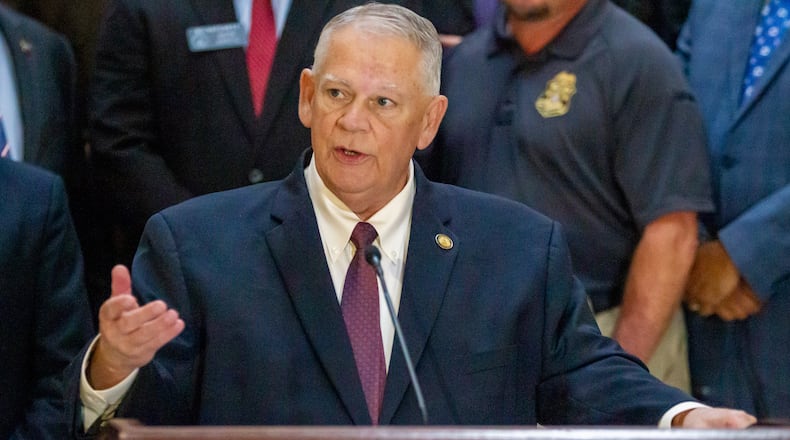State lawmakers are prohibited from raising campaign money from special interests during legislative sessions, but the Georgia House Republican Trust political action committee legally took in almost $163,000 during the November special redistricting session.
New campaign reports reviewed by The Atlanta Journal-Constitution showed the trust took in almost $900,000 during the second half of 2021, with the check-collecting continuing during November, when the PAC held a fundraiser during a George Strait concert two days into the session.
During the three-week session lawmakers redrew congressional and legislative districts for the next decade, and relatively few lobbyists hung out at the Capitol when compared with the throngs that typically attend regular sessions, such as the one that began Monday.
The General Assembly decades ago banned the governor and lawmakers from raising money during sessions, in part to lessen the appearance that lobbyists could buy influence while legislators were considering bills and funding that affected their clients.
But a loophole allows PACs such as the House Republican Trust to collect checks from those same special interests during the session. And Republicans in the General Assembly expanded that kind of fundraising last year by creating new “leadership committees” that allow the governor and a few House and Senate leaders to create funds that can raise unlimited amounts of money during a session.
David Perdue, a former Republican U.S. senator who is running for governor against GOP incumbent Brian Kemp this year, last week filed a lawsuit saying the new “leadership committees” provided Kemp with an unfair advantage. Republican challengers to Kemp aren’t allowed by law to create such committees and have to abide by donation limits set by the state ethics commission.
The House Trust plays a major role in financing House Republican campaigns and has been credited with helping the GOP maintain control of the chamber.
Its biggest donors during the past six months include: Donald Leebern III, whose family has long been a major patron of those in charge of the state, who gave $100,000; the trial lawyers lobby, which contributed $75,0000; the new car dealers lobby, which is fighting attempts by electric car companies to get the General Assembly to allow them to open dealerships and gave $26,000; AT&T, which stands to gain big from state spending on high-speed internet expansion and contributed $25,000; and tobacco giant Altria, which has fought against higher state taxes on its products for years and gave $25,000.
About the Author
Keep Reading
The Latest
Featured




